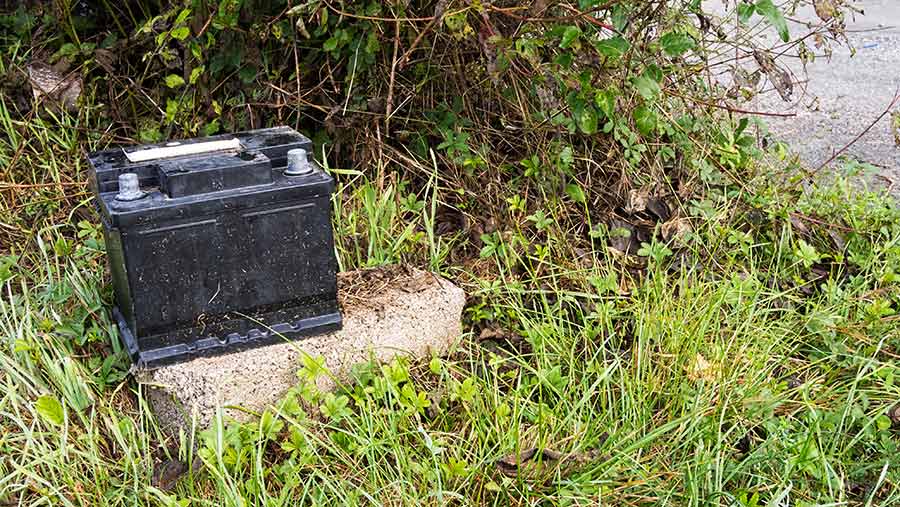Farmers warned of lead poisoning risk with spring turnout
 © Mushy/Adobe Stock
© Mushy/Adobe Stock Farmers are being cautioned about the deadly consequences of lead poisoning when turning out livestock this spring.
Food Standards Scotland (FSS) has warned that discarded or fly-tipped materials, such as car and electric fence batteries, can pose a real risk to freshly turned-out livestock as they explore their new surroundings.
When ingested, lead can cause a number of serious health problems in livestock, such as slow or stunted growth, blindness, infertility and birth defects. It can also be directly fatal.
See also: HSE launches safety campaign to reduce farm kit deaths
Stuart McAdam, the FSS head of incidents, said: “Not only are health impacts on stock distressing, but there are financial implications, such as veterinary fees, carcass disposal and loss of market value.
“Lead batteries, old paint, bonfire ash and fly-tipping are the primary causes of lead poisonings.
“Prevention is the best strategy, and checking fields regularly and removing animals’ access to these sources are the first steps to preventing these incidents.”
Abandoned battery
Grant Jolly, who farms in Newmacher, Aberdeenshire, tragically lost a cow to lead poisoning last year, while other animals in the herd suffered from the poisoning.
An old, abandoned battery was found to be the source.
Mr Jolly said: “Losing one of my cattle in such a way has been a nightmare and resulted in significant financial costs.
“The battery that was found was very old and only a small part was sticking out from the ground. Luckily, I found it.”
Vet Graham Fowlie from Oldmeldrum said cases of lead poisoning “almost always” happened in the spring when young cattle were turned out for the first time.
For the affected animal and the farmer, this is a distressing period.
“Rapid-onset blindness means the cattle can end up drowning in ditches or getting stuck in fences,” said Mr Fowlie.
“Once the animals show symptoms, death often follows quickly – it’s fairly traumatic stuff.”
Symptoms to look out for include animals becoming slow and wobbly, teeth grinding, blindness and bloating.
